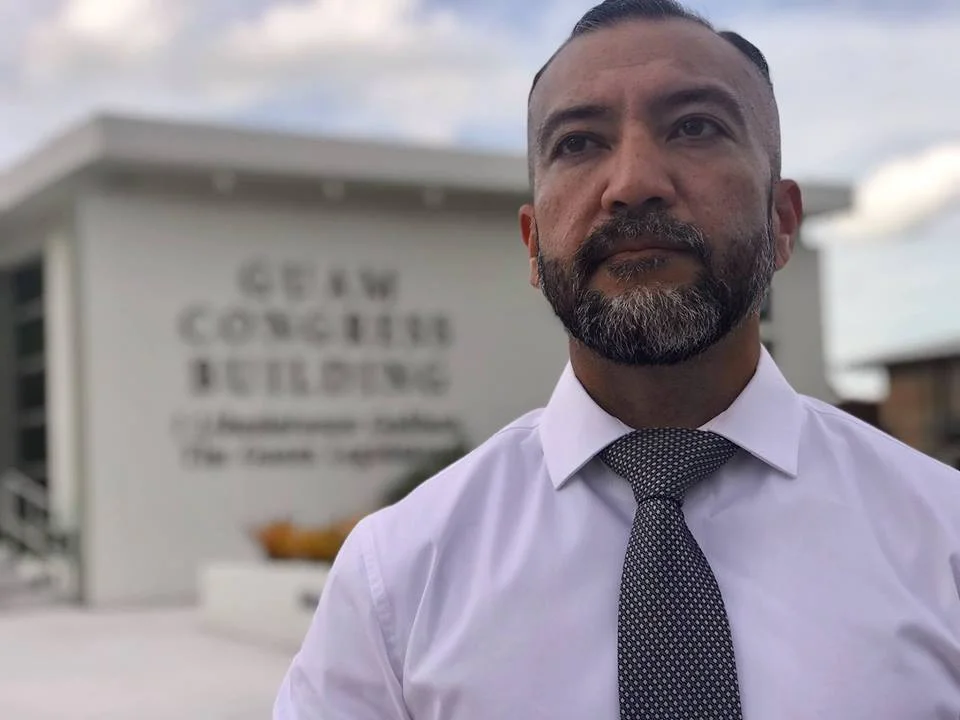AH: Honestly, I don’t believe that our knowledge will ever disappear. That is why I continue to teach the young generation so it will not fade away. We have so many navigators here in Yap and in Chuuk so it will never be lost.
TFB: Do you consider the system of navigation that is being used and taught at the PVS as “traditional”, “indigenous”, “Hawaiian”, “Polynesian”, or maybe “Micronesian”? Should they describe it as something else?
AH: I consider that it is a hybrid -- a little from ours and the rest solely based on science and mathematics and the creation of Nainoa.
TFB: You mention in your article that the “greatest insult and threat to our navigation culture is PVS’s cultural appropriation of our PWO ceremony… The Hawaiians have held public PWO ceremonies to bestow this fake title on Polynesians whom they want to recognize as master navigators even though they do not have the permission, authority, or knowledge to conduct this important initiation ceremony”.
AH: Yes, and I said that because I know that the PWO they perform is fake. How can they do it when they do not know the chants and the medicines to take. Theirs is a completely fake PWO.
TFB: In June 15, 2002 the Catholic church conducted an ordination in Satawal. The church chose to incorporate a traditional PWO ceremony within the ordination. However, Mau Piailug was against the idea, he openly showed disapproval. Is it fair to say that Christianity, namely Catholicism, is also guilty of cultural appropriation and even cultural erosion?
AH: Mau was not a believer in the Catholic faith and that is why he complained so much. The Catholic church did not come to us to do away with our culture and tradition; they came in and saw where it would fit in our culture and did not tell the people to throw away our culture.
TFB: We at TFB, conducted a poll that asked the question, “Are Polynesians Culturally Appropriating Micronesian Navigation?”. In the comments section of that poll/article, the late Hawaiian master navigator Chad Baybayan, a student of Piailug, posted a lengthy response. At the heart of his response to our poll he wrote in reference to when Mau Piailug was invited to fly to Hawaii to help teach the Hawaiians traditional navigation, “once Mau arrived, he confirmed that the system that Nainoa (Thompson) had developed was exactly the same as Mau’s traditional system.” What are your thoughts on this comment by master navigator Baybayan?
AH: They are two very different systems. I do not know why Mau would say they are the same. I think it is because of our star compass that looks almost similar to theirs and those few things that Mau taught them. Mau did not look deep into their navigational system and so he just agreed that they are the same. My response is, no way!
TFB: There is a quote from Mau Piailug that sums up his vision for the future of traditional navigation. This quote was published in the Honolulu Star-Advertiser on July 29, 2010, and was paraphrased by master navigator Chad Baybayan: “I have laid the stick that connects people together. Now it is up to you, your generation, and the generations to come, to build upon that stick a bridge that will ensure the free sharing of information and teaching between the two peoples until the day we become united again as a single people, as we were once before; before men separated us with their imaginary political boundaries of today’s Polynesia and Micronesia”. What are your thoughts on Mau Piailug’s vision?
AH: I have seen the video of Mau speaking that includes this English translation. But in that clip, Mau never mentioned anything like this. He only talked about ignoring our culture and that we should teach the culture to our children; that we will teach the children because they are growing up and not the old people who will soon die. But what I see in this and other quotes of Mau’s is not surprising to me as we navigators are trained to talk the “talk of the sea” and the “talk under the mast.” What that means is, even if I tell you something I did not really give you everything. I only gave you something so you will feel good about it, but I did not give you everything. I will never “spill the seeds.”
TFB: What can the PVS do to make proper amends?
AH: As I said in my recent editorial that appeared in the Pacific Island Times in June 2022, I have asked PVS to correct the falsehoods they have been promoting about Mau and what he taught Nainoa, and to cease using Mau’s name and references to his time working with PVS in ways that are not true. They appear to have finally revised their website and taken down nearly all of these misleading references and I thank them for that. But I also ask that they make certain that any journalists who contact them about writing articles are given the truth about Mau’s involvement with PVS and Nainoa in order to stop perpetuating the falsehoods and myths that evolved over the years about their system of navigation and PWO being the recipients of Mau’s knowledge of the Micronesian wayfinding system. They are not the same and it is deceptive to say otherwise.



















